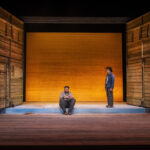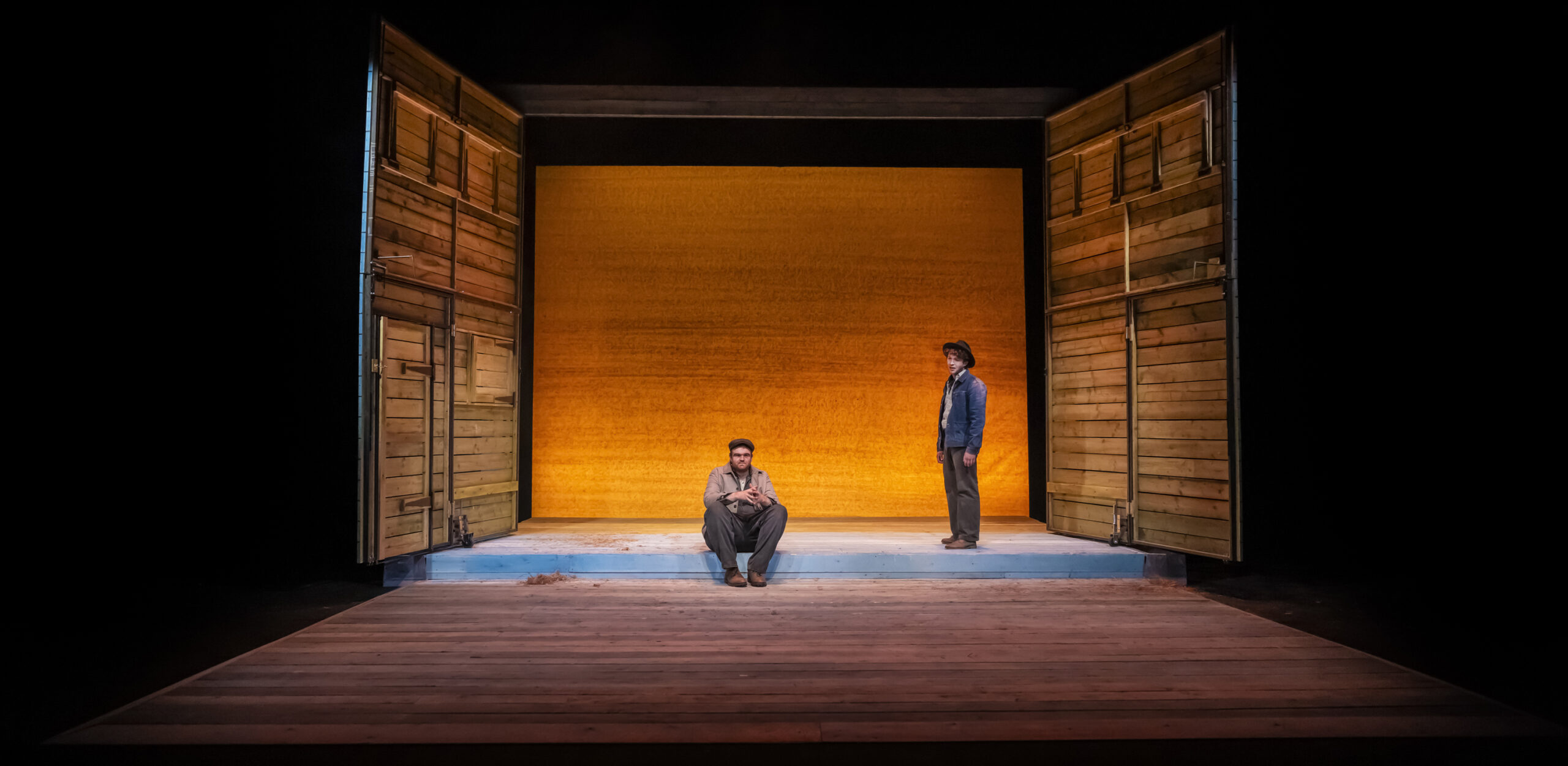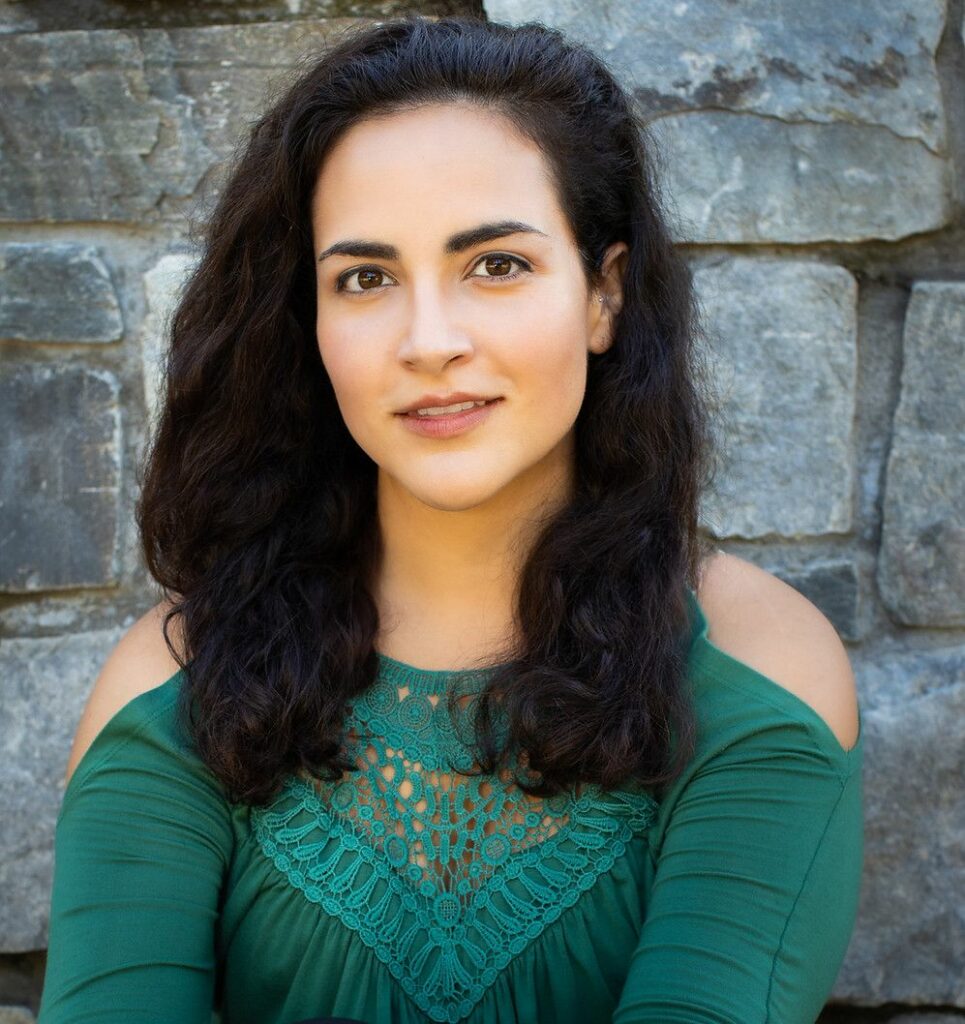
We’re taking a look at the must-see shows in London right now. Having covered Nicholas Hytner’s immersive Guys & Dolls, currently taking the Bridge Theatre by storm, we’re moving on to a musical sensation that’s been around for an awful lot longer; Andrew Lloyd Webber’s Phantom of the Opera.
We speak with current cast member Kelly Glyptis who plays Carlotta Giudicelli in the current production about what it’s like to be a part of the history of this famous musical.
Kelly Glyptis is talking with me from her home in London where the American lyric soprano has lived since taking on the role of Carlotta Giudicelli in the permanent West End hit Phantom of the Opera.
Andrew Lloyd Webber’s 1986 musical, based on Gaston Leroux’s novel, tells of the beautiful soprano Christine Daaé and the strange masked ‘phantom’ who lives beneath the Paris Opera House where Christine is set to star in a new production, having replaced resident prima donna, Carlotta following a strange and ghostly event in the theatre.
Glyptis, whose career has taken her around the world, touring North America in The Sound of Music, performing in Opera premieres in the UK and at events and honours for Renée Fleming, Justice Ruth Bader-Ginsburg, and Pope Benedict XVI, believes that Carlotta is a character who is often misunderstood. “She’s seen as this caricature of the evil diva woman who just has it out for Christine.”
There’s more to it than that in her view, and there is something to be respected in what Carlotta has achieved before the events that play out in the musical. It’s something she says director Seth Sklar-Heyn has supported her in drawing out of the character. “Seth has been so fantastic in allowing me to explore that and to live in those moments.”
“This is a single woman who has made a career in the late 1800s; making her own money, probably acting as her own agent if she’s in the office.”
What happens isn’t so much a diva turn but an act of self-defence. “She’s defending herself [and] she’s defending the whole company. All this stuff is happening and she finally just loses it, and she goes; ‘Until this stuff gets fixed, I’m not performing… This is not safe; these are not safe working conditions.’”
She says she “lovingly jokes” to Lily Kerhoas (currently playing Christine), “Christine is a scab – she and Meg, they cross the picket line.” And all of that adds the context that is sometimes missed in her character and justifies some of her actions; the animosity towards Christine is partly jealousy but is mostly something else.
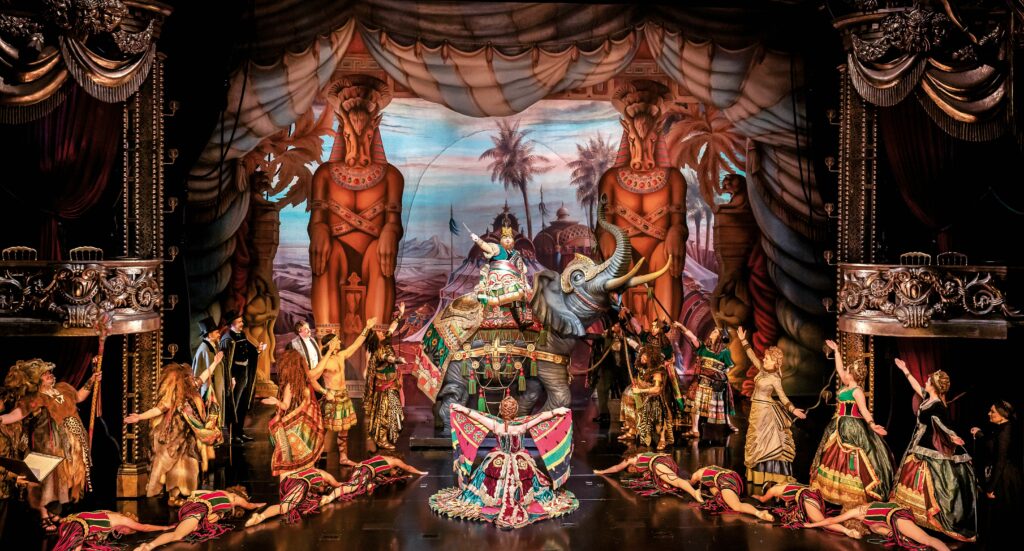
“Really [it’s] fueled from this place of; she has had to work so hard to get where she is and she’s seeing this young girl in the dance core – not even the ensemble – be plucked into the lead from nowhere… She struggles with that. So there’s a little bit of this jealousy thing but it’s a justice issue with her as well.”
The diva element is further challenged by Carlotta’s reaction after Christine is given the lead role. “In [the song] Don Juan, Carlotta is in the chorus. She goes ‘Fine; I will sing in the chorus for the greater good.’
“Now, does she like it? Is she being obnoxious? Absolutely. But Carlotta does take that step. You still see Carlotta [throughout] the show. She doesn’t just go, ‘I’m out – if I’m not the lead I’m out.’ She does swallow her pride and go into the chorus… It’s very easy to vilify her, but if you really sit and think about it, she’s really just hurt and defending herself.”
Carlotta though adds an element of comic relief. “But comedy comes from truth and realism,” says Glyptis and, paraphrasing Mel Brooks she says; “‘Tragedy is when you get a paper cut; comedy [is when] you fall into a manhole and die.’ There are times where we [Glyptis and Sklar-Heyn] want the audience to live in this uncomfortable world of ‘we know we’re supposed to not like Carlotta, but she’s not wrong.’
That’s where the comedy comes into it for Glyptis. She references her ‘These things do happen’ speech. “The whole speech is not wrong and then we get to the end and she flips and we get the little head turn… and oftentimes it’s this uncomfortable release of a laugh.”
Given her background in musical theatre and opera, she seems like the perfect person to portray Carlotta; she is a trained opera singer and has created World Premiere roles as the titular character in Madeleine with Surrey Opera and Meesha in Her Day with Her Day Opera. “There is nothing quite like creating a role; it is wildly fulfilling artistically and just fulfilling in my soul.”
Her Day tells the story of four women coming together and supporting each other, with a central theme of domestic violence – it was an experience that has stuck with Glyptis. “That one was really special because it was all exclusively female; the entire staff…everybody was a woman. And it was such a special experience because I’ve never experienced that ever before; being in a room creating art with only women.”
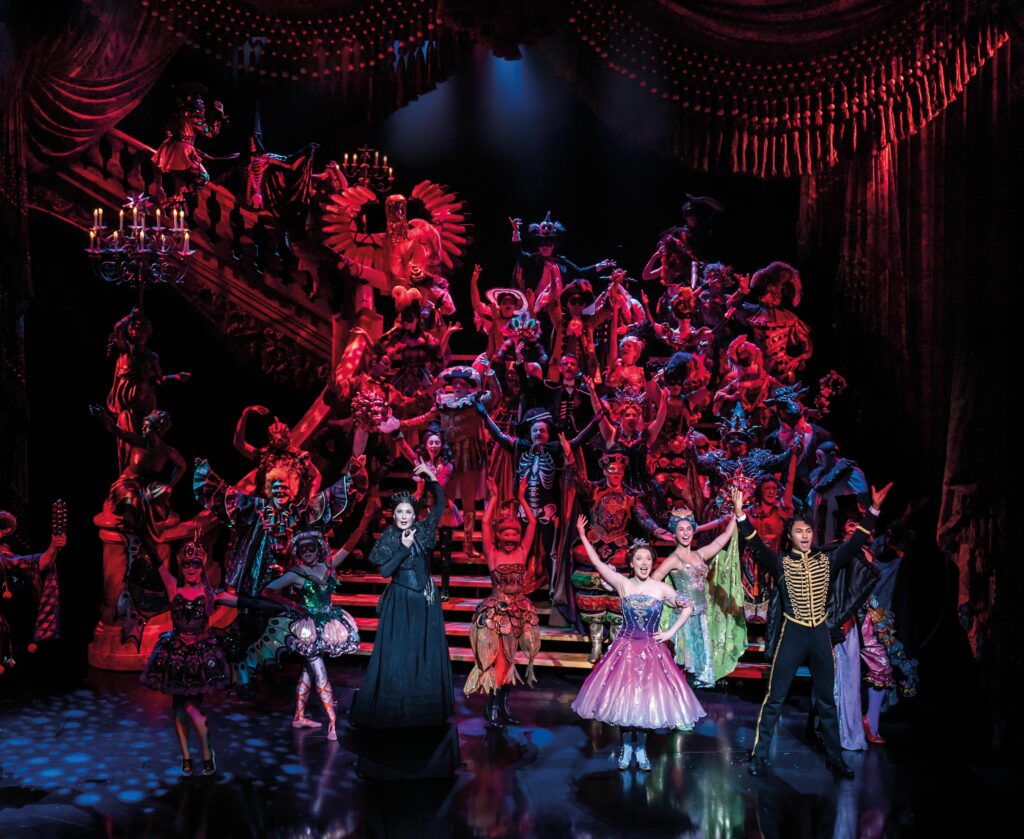
With that background, she says she had been told for years that she had to play Carlotta and she admits that her training has prepared her for the role, given some of the challenges that come with the character. Lloyd Webber based the character on how opera singers used to work, where a singer would be hired by a house to play a variety of opera styles over the course of a year and Lloyd Webber included all of those styles in Carlotta’s musical numbers, squeezing a year’s worth of genres into one night in Phantom of the Opera. “I’m very fortunate that my training has made me able to lock into each style,” she says.
Singing across a variety of operatic styles for eight shows a week brings other considerations too. “The biggest challenge for me is just making sure on a day-to-day basis that I’m in the right physical energy to do it. So it’s really about checking in with your body every single day. Carlotta is not the role that you can coast on.”
And she certainly hasn’t been coasting; Glyptis has been performing in the show for two years, and the magnitude of being part of Phantom of the Opera and part of its history isn’t on her. “It’s [been playing for] 37 years and we still have full houses. I mean that’s wild, right?”
Performing this role in this theatre is particularly poignant for someone with Glyptis’s operatic background. “The site of His Majesty’s Theatre is actually the site of the theatre where Mozart and Handel premiered all of their English operas – their London premieres.” And Lloyd Webber included a small homage to Mozart’s Così fan tutte in the musical that resonates with Glyptis. “Walking out on that stage, you hear the little intro to Così fan tutte… it’s always a little reminder to me; Mozart was here, he was actually here in this space.”
There’s also the impact of the audience for her, particularly the people who are seeing the musical for the first time. “There’s always at least one person just in the front row… [she mimics awe] who’s just dumbfounded and I think it’s important to hold on to those moments,” she reflects.
“We’re storytellers, we’re communicators, and the history of this piece is really important and it’s so nice to share that with people,” she adds.
Phantom of the Opera is at His Majesty’s Theatre, booking until September 2024



